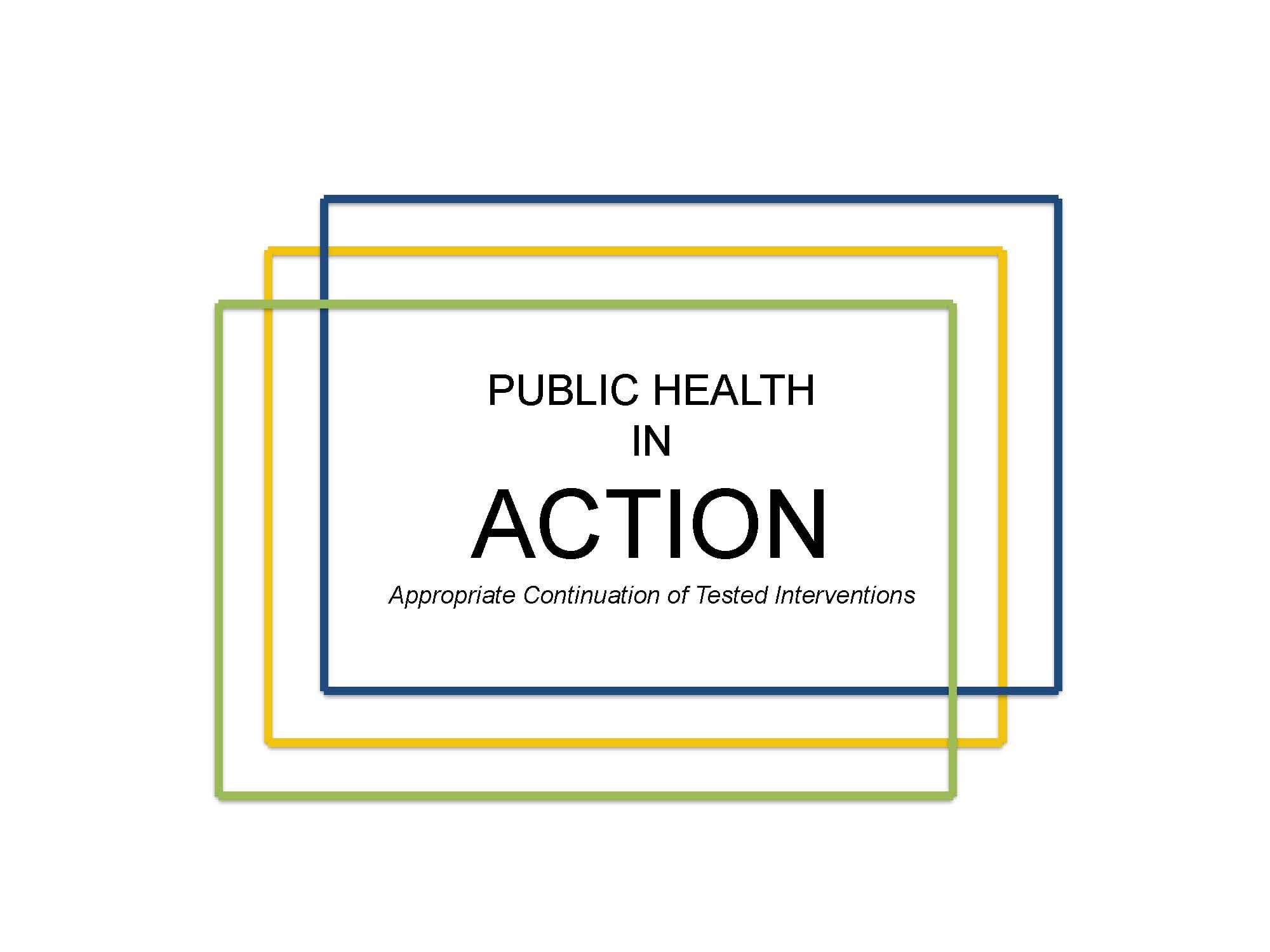Public Health in ACTION

Project Dates: April 2017- March 2023
The purpose of Public Health in ACTION (Appropriate Continuation of Tested Interventions) is to identity the extent to which cancer control mis-implementation occurs within health departments at the state level. Misimplementation refers to ending effective programs and policies or continuing ineffective ones. Greater attention to mis-implementation should lead to use of effective interventions and more efficient expenditure of resources, which in the long term, will lead to positive cancer outcomes.
Project Goals:
- Assess the extent to which mis-implementation is occurring among state cancer control programs in public health through a nation-wide survey.
- Develop and disseminate a series of case studies that will highlight lessons learned about mis-implementation.
- Build an agent-based model to identify dynamic interactions between individual, organizational, and contextual (external) factors leading to mis-implementation.
Implications for Research and Practice:
This project addresses population health strategies related to premature cancer morbidity and mortality. Sparse knowledge exists regarding effective approaches for reducing misimplementation among real world practice audiences. Upon completion, our project will provide practice-relevant strategies for more efficient use of resources that can be adapted to other settings and risk factors.
Project Contact:
Peg Allen pegallen@wustl.edu
Project Staff:
Project Manager: Peg Allen, pegallen@wustl.edu
Research Assistants: Jess Gannon
Principal Investigator: Ross Brownson, PhD
Co-Investigators: Douglas Luke, PhD; Peg Allen, PhD; Sarah Moreland-Russell, PhD; Ross Hammond, PhD, Paul Erwin, MD, DrPH, Stephanie Mazzuca, Cheryl Valko
Project Partners:
Brookings Institution Center on Social Dynamics and Policy; National Association of Chronic Disease Directors (NACDD)
Funding Source:
NCI R01CA214530
Kasman M, Hammond RA, Purcell R, Farah Saliba L, Mazzucca S, Padek M, Allen P, Luke DA, Moreland-Russell S, Erwin PC, Brownson RC. Understanding mis-implementation in U.S. state health departments: An agent-based model. American Journal of Preventive Medicine. In press.
Farah Saliba L, Allen P, Mazzucca SL, Rodriguez Weno E, Moreland-Russell S, Padek M, Brownson RC. Program adaptation by health departments. Frontiers in Public Health. 2022 Sep 12;10:892258.
Moreland-Russell S, Farah Saliba L, Rodriguez Weno E, Smith R, Padek MM, Brownson RC. Leading the way: competencies of leadership in preventing mis-implementation of public health programs. Health Education Research. 2022 (7 Sept). Epub ahead of print.
Tsai E, Allen P, Farah Saliba L, Brownson RC. The power of partnerships: State public health department multisector collaborations in major chronic disease program areas. Health Research Policy and Systems. 2022 (July);20:80.
Mazzucca S, Farah Saliba L, Smith R, Rodriguez Weno E, Allen P, Padek M, Brownson RC. ‘It’s good to feel like you’re doing something’: A qualitative study examining state health department employees’ views on why ineffective programs continue to be implemented in the United States. Impl Sci Communications. 2022 Jan 15;3(1):4.
Rodriguez Weno E, Allen P, Mazzucca S, Farah Saliba L, Padek M, Moreland-Russell S, Brownson RC. Approaches for ending ineffective programs: Strategies from state public health practitioners. Frontiers in Public Health. 2021 (20 August);9: 727005. doi: 10.3389/fpubh.2021.727005.
Padek MM, Mazzucca S, Allen P, Rodriguez Weno E, Tsai E, Luke DA, Brownson RC. Patterns and correlates of mis-implementation in state public health practice in the United States. BMC Public Health. 2021:21(101). https://doi.org/10.1186/s12889-020-10101-z
Rodriguez Weno E, Mazzucca S, Parks RG, Padek M, Allen P, Brownson RC. Use and awareness of the Community Guide in state and local health department chronic disease programs. Preventing Chronic Disease. 2020 (22 Oct);17:200196.
Ornstein JT, Hammond RA, Padek Kalman M, Mazzucca S, Brownson RC. Rugged landscapes: Complexity and implementation science. Implement Sci. 2020 Sept 29;15(1):85. doi: 10.1186/s13012-020-01028-5
Erwin PE, Padek MM, Allen P, Smith R, Brownson RC. The association between evidence-based decision-making and accreditation of state health departments. JPHMP. 2020 (September/October);26(5):419-427.
Franco M, Mazzucca S, Padek M, Brownson RC. Going beyond the individual: how state-level characteristics relate to HPV vaccine rates in the United States. BMC Public Health. 2019 Feb 28;19(1):246. doi: 10.1186/s12889-019-6566-y.
Padek, M., Allen, P., Erwin, P., Franco, M., Hammond, R., & Heuberger, B. et al. Toward optimal implementation of cancer prevention and control programs in public health: a study protocol on mis-implementation. Implementation Science. 2018 Mar:13:1. doi:10.1186/s13012-018-0742-9
PH ACTION Preliminary Results from National Survey (pdf)
Why a program is considered ineffective and why they continue Brief
5 Strategies for Ending Ineffective Programs Diagram
Program Adaptation by State Health Departments Timeline Diagram
Leadership Qualities to Promote Effective Public Health Programs Visual Graphic